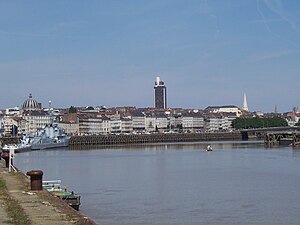
WEIGHT: 46 kg
Bust: C
One HOUR:150$
NIGHT: +60$
Services: Cum on breast, Role Play & Fantasy, Bondage, TOY PLAY, Sex vaginal
Nantes prostitutes in the eighteenth century were on average twenty-five years old and single. Usually coming from a poor background, they received very little training in their youth and described themselves as seamstresses, thread and needle makers or laundresses.
They received their customers in their own room or met them in inns and taverns: they mostly lived in districts near the port and the plebeian suburbs of the Marchix. Commissaires were the most important officers on the beat as they had the right to arrest and detain culprits, take fines and use mediation and summary justice. They were assisted in their daily patrols by the militia or garde bourgeoise. Vincent Danet showed that commissaires were generally appointed for more than a year and therefore, as they lived in the district they patrolled, they had close connections and relationships with the inhabitants and a detailed knowledge of the various public houses and inns as well as their tenants and customers.

These continual interactions, it may be argued, must have eased the judicial process by encouraging mediation and summary justice, reducing the number of affairs going to court. The relations between commissaires and prostitutes were structured around two different categories of prosecutions. They targeted women responsible for disturbing the peace, for example by screaming, partying, receiving noisy people or generally behaving in a disorderly manner being noisy or throwing stones or garbage in the street or insulting neighbours and passer-bys once they had received a complaint.
Only after having carried out these investigations, and finding the prostitutes guilty, did the commissaires take the women into custody a rare occurrence or give them twenty-four hours to leave their place of abode. At the same time, patrols were made daily in order to check that the gates of alleys were shut, that taverns and inns closed on time, that no alcohol was served during Mass and that lodging-keepers kept their books up to date.

The reports of these patrols offer an interesting insight into the attitude of the commissaires towards prostitutes: even when meeting prostitutes and their customers in their homes, or in a tavern, commissaires simply reported their presence but did not take any action against them. In most cases they did not even take their names. These attitudes reveal two characteristics of the mentality of Nantes commissaires in the eighteenth century. Firstly, it appears that prostitution was not considered a crime if no one was offended by it or, in other words, if no complaint was filed.
































